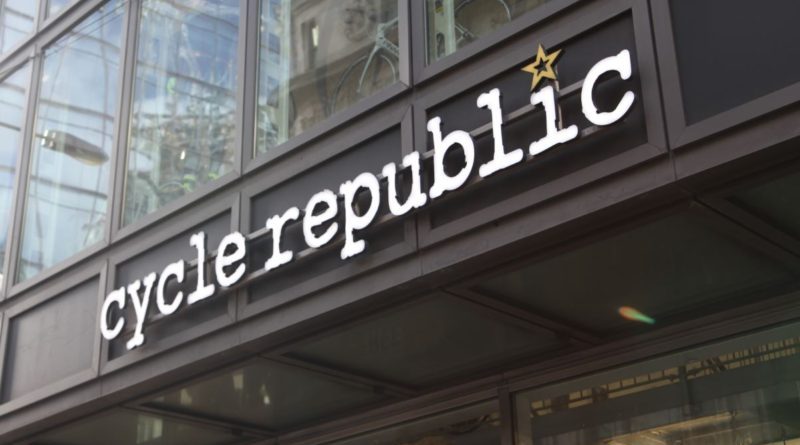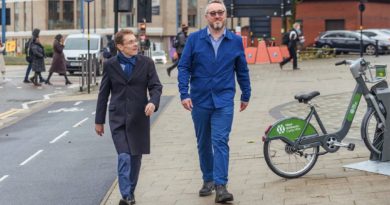Why is Cycle Republic now offering to ride new customers to work?
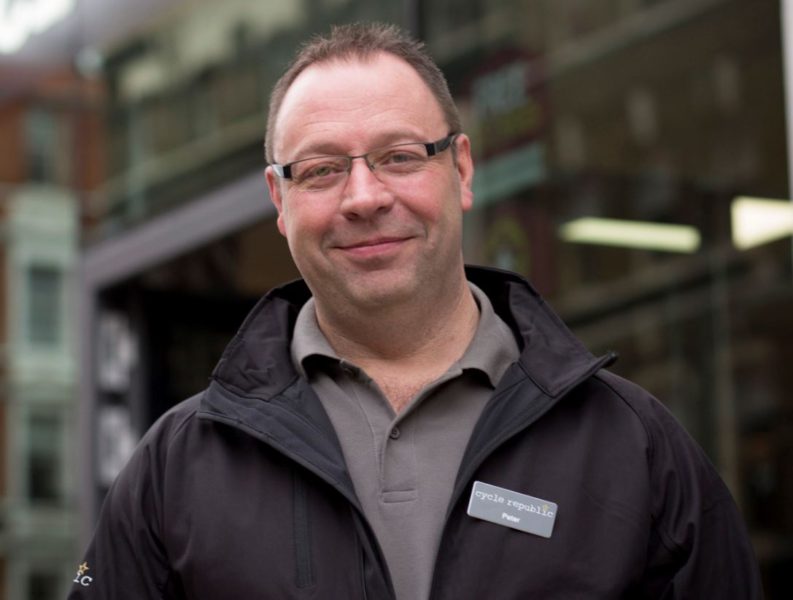
There’s a lot of scepticism in the trade for the operations of “big business”. Indeed, you might think of Cycle Republic as a rival, but there’s something intriguing about MD Peter Kimberley’s claim to have built the business around the independent model. Is this just Halfords rebadged? We don’t think so, and here’s why (if you’re willing to read on) there might just be something to be learned…
They say it pays to look outside of your own bubble once in a while to see how others do things. There is the much wider picture; think industries beyond our own. Then there’s those often dismissed by independents, the retail chains within our bubble. But why would you take inspiration from retail chains outside of our industry, but not from within?
In the case of this article, Cycle Republic has been operational since December of 2014, opening first in Euston, London. As with Tredz, it is operated as a separate entity to parent Halfords and the chain has been quick to differentiate its offering to reflect a unique character under the stewardship of managing director Peter Kimberley. At this point we’ll confess to having, like many others, underestimated just how flexible and personal a now 19 store chain can be in thinking outside of the box.
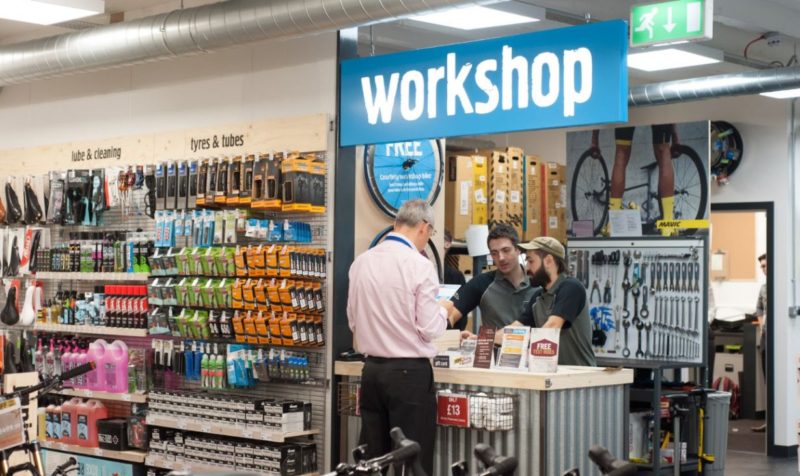 There’s no more eye-opening scenario than just how Cycle Republic has flipped on its head the concept of catering for the urban commuter, and not just its own customers.
There’s no more eye-opening scenario than just how Cycle Republic has flipped on its head the concept of catering for the urban commuter, and not just its own customers.
“We’ve a promotion we run in our urban stores that gets people out of trouble in a big way. Whether they’re on a hire bike or their own bike, regardless of where they bought it, we’ll fix a puncture for free, charging only the tube cost. Customers are at their most vulnerable when they’re down and out with a puncture and few will want to get their hands dirty on the way to work. This offer I think sticks with the customer and creates a bond,” explains Kimberley.
More impressive is just how much deeper the business has looked at customer needs, almost to the point where product sales seem an afterthought.
“There’s a quite severe lack of cycle parking in London,” says Kimberley, quite correctly. “For that reason we’re assessing whether there’s the need for a service here. Ensuring the commuter’s journey runs smoothly is as much our duty as selling them the gear to complete it. Showers in stores has been tossed around too for those cyclists without facilities at their workplaces. Our store managers are constantly tossing around ideas in the company’s Whatsapp group.”
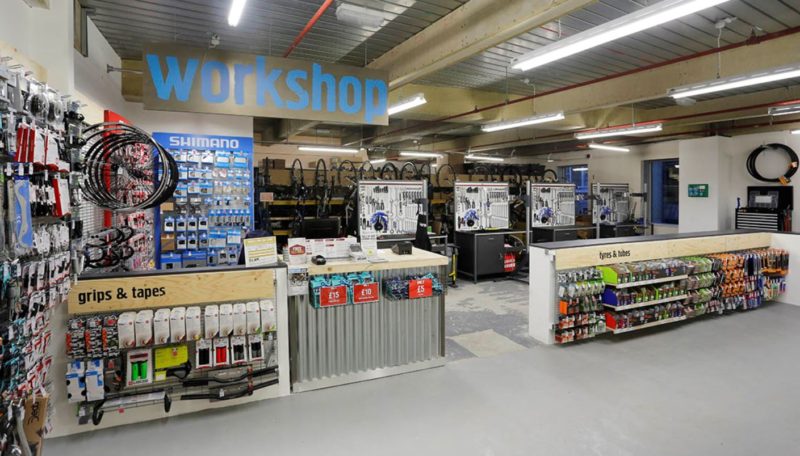 Most impressive of all, when Cycle Republic do sell a bike, those customers who have shown concern about their journey to and from work can benefit from another very personalised service.
Most impressive of all, when Cycle Republic do sell a bike, those customers who have shown concern about their journey to and from work can benefit from another very personalised service.
“By appointment we offer customers an accompanied first ride of their route with one of our staff members showing the customer turn-by-turn directions, prioritising the most efficient and safest routes. Research shows that safety is a primary reason for people choosing not to cycle to work and that doesn’t stop once they’ve made the jump to buy a bike. That bike can either end up in the shed after one close pass, or we can invest our time into that customer to build their confidence for the long-term. Sure that costs us man hours, but it’s an investment in creating new customers for the industry as a whole and that’s essential.”
When asked where the industry has the greatest scope for creating new business, Kimberley points to three segments that have traditionally been overlooked until very recently; women’s cycling, commuter cycling and electric bike custom. While the trade has made steady progress on each segment, it has taken some flag waving.
“Getting the tube and bus user onto the bicycle; helping people understand that you can have fun going uphill on e-bikes and doing more in store to accommodate half of our market has been crucial for developing our urban customer base,” explains Kimberley. “We’re doing a lot more in store in terms of diversifying our social offering. We had a yoga session on the shop floor at Lime Street recently and we’re working with the Breeze Champions to deliver more women’s-specific content. You’ll also notice us at events like Velo Birmingham in force. We were the mechanical partner this year, with 20 staff and eight cars out. We saved one chap’s ride who had a top tube crack, handing him a spare bike. He was able to complete the event as a result and again, helping people when they’re most vulnerable really sticks in their mind when it comes to customer service.”
Maybe it’s the roadside rescue, or perhaps it’s a heavily invested in store experience, but Cycle Republic has now found itself commanding what it says are the UK’s best Google reviews. That claim’s hard to gauge without a deep study, but the worst we found was a 4.3 rating out of 5 of all branches. What’s more, when a bad review lands, the manager responds, every time, we’re told.
Stores are designed in such a way that customer interaction and convenience is prioritised. In the Lime Street branch, for example, the ground floor acts simply as a repairs drop off point, enabling morning commuters to quickly hand over their steed without having to navigate shop floor stock. With a demographic of busy office-based commuters to cater for, mobile mechanics too is an outreach of Halfords.
“We’re assessing a cargo-bike model to take the workshop to business’s doorsteps,” says Kimberley. “This is an entirely customer driven development, but one that has the backing of a lot of city firms who are actively looking to up cycle to work numbers. We’re actually in discussions to open dedicated workshops in some of the city’s larger employer’s buildings.”
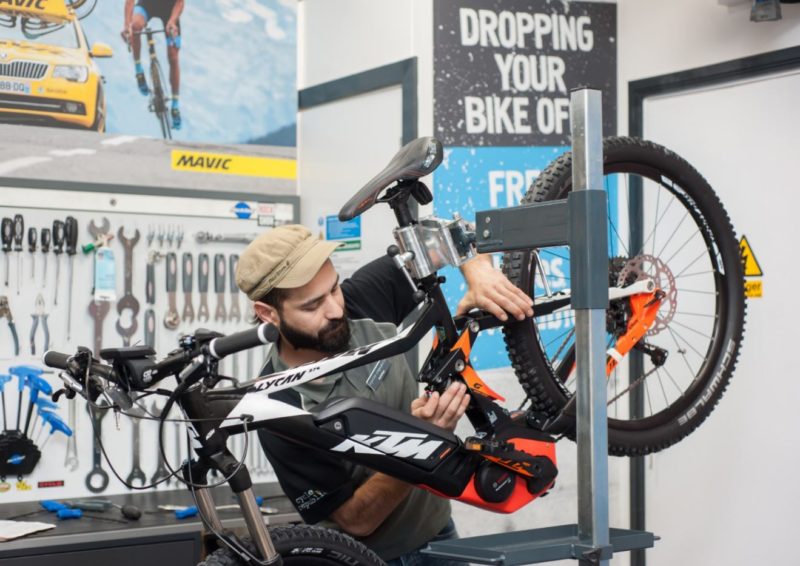
Advocating the active travel lifestyle, Kimberley speaks of local authorities that have approached the business for ideas on developing cycling levels. Surprisingly, he actively recommends developing city bike hire schemes.
“More bums on seats is our philosophy,” he concludes. “For those customers who haven’t considered cycling for transport, it’s crucial the trade gets bums on seats by any means. We have been and remain active in raising cycling’s place in ever-congested spaces. It’s the industry’s responsibility to push the case.”
